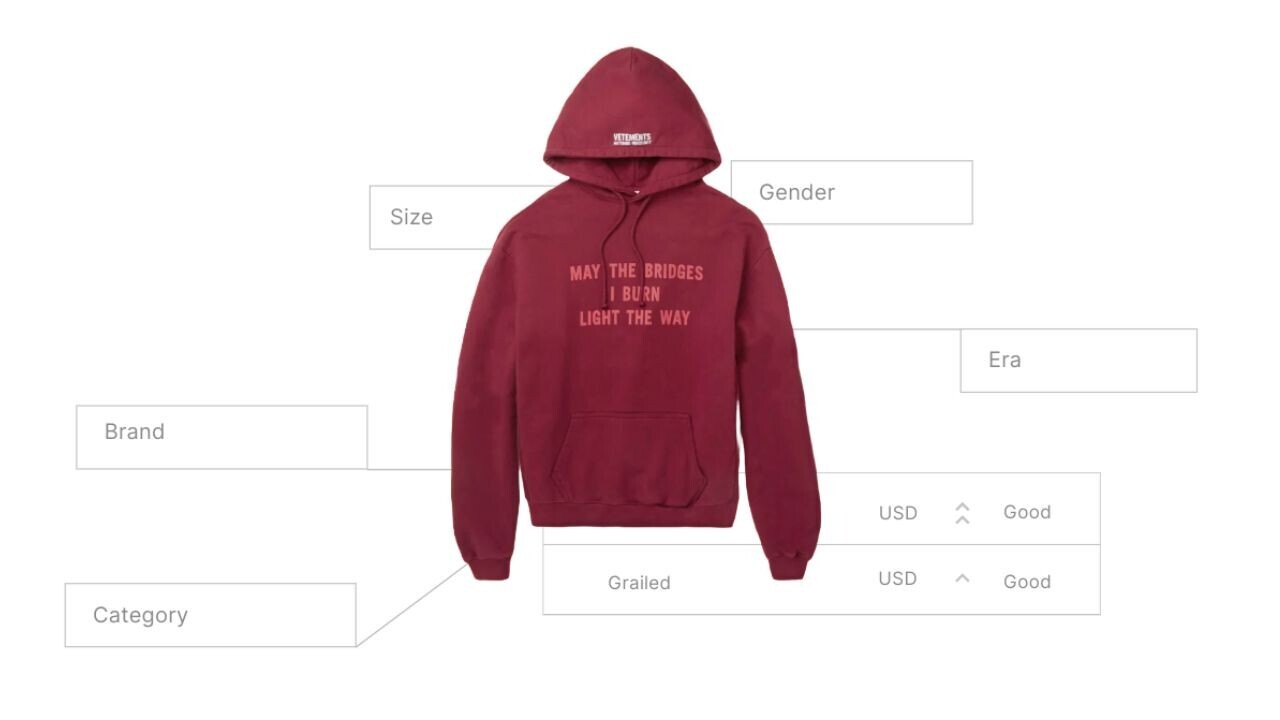
Depop and Selfridges are sewing an AI thread into their clothes.
The fashion retailers have enlisted British startup Kelp Technologies to analyse market trends and prices of second-hand apparel.
Kelp — aka Truss — will apply AI to automatically assess items of clothing. Proprietary algorithms will then suggest prices, recommend products, and refine search results.
Depop will bake the insights into the platform’s clothes listings. Selfridges will apply them to the company’s resale arm, Reselfridges.
The project aims to save them time and money. By boosting the second-hand clothing market, it could also reduce waste and greenhouse gas emissions.
“Every item holds a story, but unlocking its value is a laborious process marked by online research and manual data entry,” said Woody Lello, the CEO of Truss. “Our mission is to empower resale businesses with instant access to rich, actionable data.”
Lello and three friends from Warwick University founded Truss in 2022. With AI on their side, the quartet probe historic fashion data to predict future trends.
Their platform aggregates visual, textual, and financial information about clothes listed online. Insights are then delivered to the second-hand fashion industry. Companies can then adapt their garment selections, sale prices, and release dates.
Such decisions have become increasingly complex.
Second-hand fashion cycles
Trendsetters have frequently found that fashion follows a “20-year rule.” According to the theory, styles from the past will return to the forefront after around two decades. But that trend has recently become passé.
The rise of social media and fast fashion has dramatically condensed the cycle. Trends now often die and reemerge within the space of a few years.
For fashion retailers, that’s increased the need for deep analysis and fast insights. AI is well-suited to these tasks.
The concept has friends in high places. The British government today announced that Truss will receive part of a £32mn budget for new AI projects.
Feryal Clark, the new minister for AI and digital government, called the funding “crucial” for the economy.
“We want technology to boost growth and deliver change right across the board, and I’m confident projects like these will help us realise that ambition,” she said.
The new investment, however, is just a fraction of the £1.3bn of tech funding that the government shelved this week.
“The £32mn allocation to regional AI projects is a far cry from the retracted £1.3bn pledge,” said Ekaterina Almasque, a general partner at VC firm OpenOcean. “But it takes at least one step towards rebalancing the UK’s AI landscape.”
Get the TNW newsletter
Get the most important tech news in your inbox each week.





